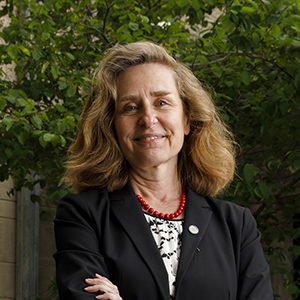Even after global setbacks from COVID-19, the average life expectancy continues to increase for humans everywhere. This is generally regarded as good news: Longer life typically correlates with access to wellness resources, social connections, and similar aspects of a healthy life. But a longer life doesn't necessarily translate to a better life—particularly if aging persons develop cognitive conditions that affect their ability to care for themselves and others. This important distinction drives ongoing research by Molly Rosenberg, Ph.D. of the Indiana University School of Public Health-Bloomington (SPH-B).

An associate professor in the Department of Epidemiology and Biostatistics, Rosenberg has spent the last several years exploring the relationship between socio-economic conditions and the development of Alzheimer's disease and related dementias (ADRD) in rural South Africa. Despite general gains in life expectancy, a grim statistic casts a shadow over this region: By 2050, about three-quarters of ADRD cases will occur in low- and middle-income areas such as these.
Rosenberg began investigating these issues in 2020 with more than $2 million in funding from the National Institute on Aging of the National Institutes of Health (NIH). The project tested whether cash transfer interventions affected memory decline and ADRD risk. The researchers suspected that when aging adults lived in households with more cash on hand, they would experience slower or less severe cognitive decline.




